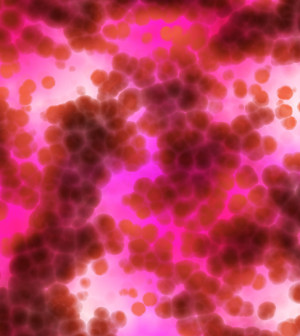- 8 Ways to Increase Dopamine Naturally
- 7 Best Breads for Maintaining Stable Blood Sugar
- Gelatin vs. Collagen: Which is Best for Skin, Nails, and Joints?
- The Long-Term Effects of Daily Turmeric Supplements on Liver Health
- Could Your Grocery Store Meat Be Causing Recurring UTIs?
- Are You Making This Expensive Thermostat Error This Winter?
- Recognizing the Signs of Hypothyroidism
- 10 Strategies to Overcome Insomnia
- Could Artificial Sweeteners Be Aging the Brain Faster?
- Techniques for Soothing Your Nervous System
After Breast Cancer Surgery, Patient Assistance Programs Can Help


FRIDAY, Oct. 25Patient assistance programs make it more likely that breast cancer patients will get additional treatments after they have surgery, and receive other kinds of support, a new study finds.
These recommended additional — or “adjuvant” — therapies include radiation, chemotherapy and hormonal treatments.
“Doctors have been frustrated by data showing that perhaps as many as 20 percent of women with breast cancer — especially black and Hispanic women — do not take advantage of lifesaving adjuvant therapies,” study author Dr. Nina Bickell, a professor of health evidence and policy and a professor of medicine at Mount Sinai Hospital, in New York City, said in a Mount Sinai news release.
“Some women lack critical information about the value of these treatments, while others need help dealing with the emotional aspects of breast cancer treatment, or with practical matters — such as transportation, insurance or childcare — before taking the next step,” she said. “Fortunately, there are many high-quality patient assistance programs that can help women address these issues.”
Bickell and her colleagues looked at 374 women with early stage breast cancer who had recently undergone surgery for their cancer. Nearly 80 percent of those who contacted a patient assistance program had some or all of their needs met, compared with 35 percent of those who did not connect with a program.
The programs were especially effective in meeting patients’ needs for information about adjuvant treatment or counseling, according to the study recently published online in the Journal of Oncology Practice.
“We were delighted to discover that most of the women in our study who needed some type of assistance had a successful encounter with a patient assistance program and got the treatments they needed,” Bickell said.
“Nevertheless, national statistics suggest that women in the U.S. continue to face economic and logistical barriers to getting adjuvant therapy for breast cancer,” she added. “To ensure that patient assistance programs have the greatest impact on reducing national disparities in care, private philanthropies, which represent the biggest source of funding for these valuable programs, will be challenged to increase development in this area.”
More information
The U.S. National Cancer Institute has more about breast cancer treatments.
Source: HealthDay
Copyright © 2026 HealthDay. All rights reserved.










